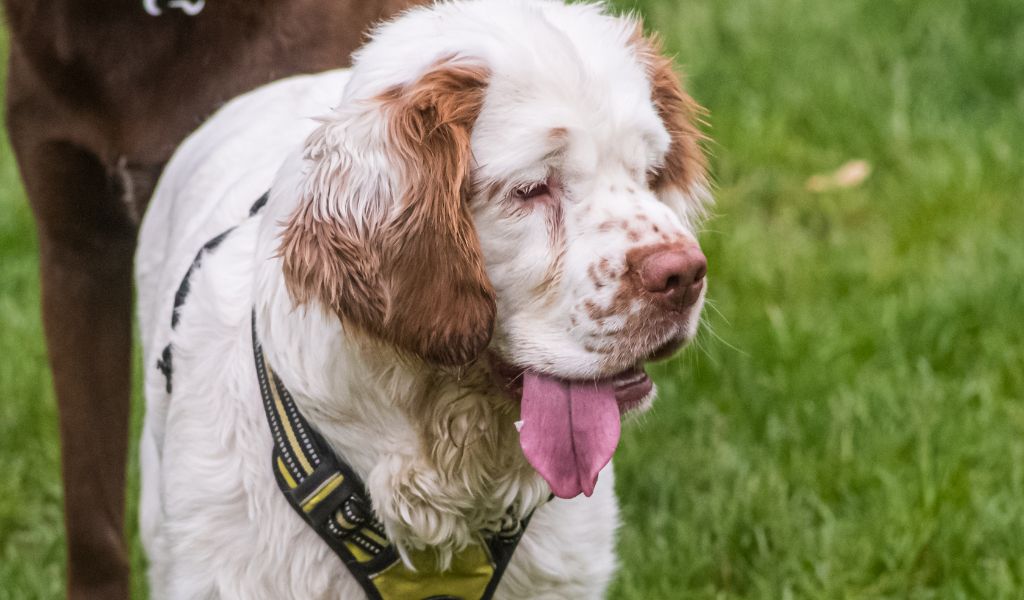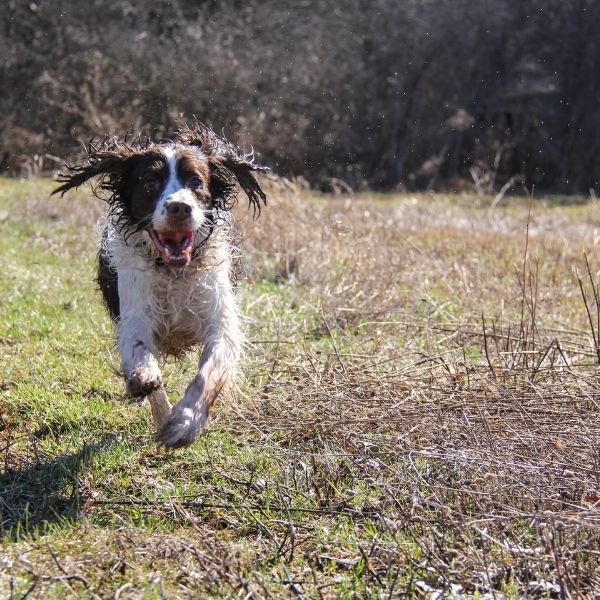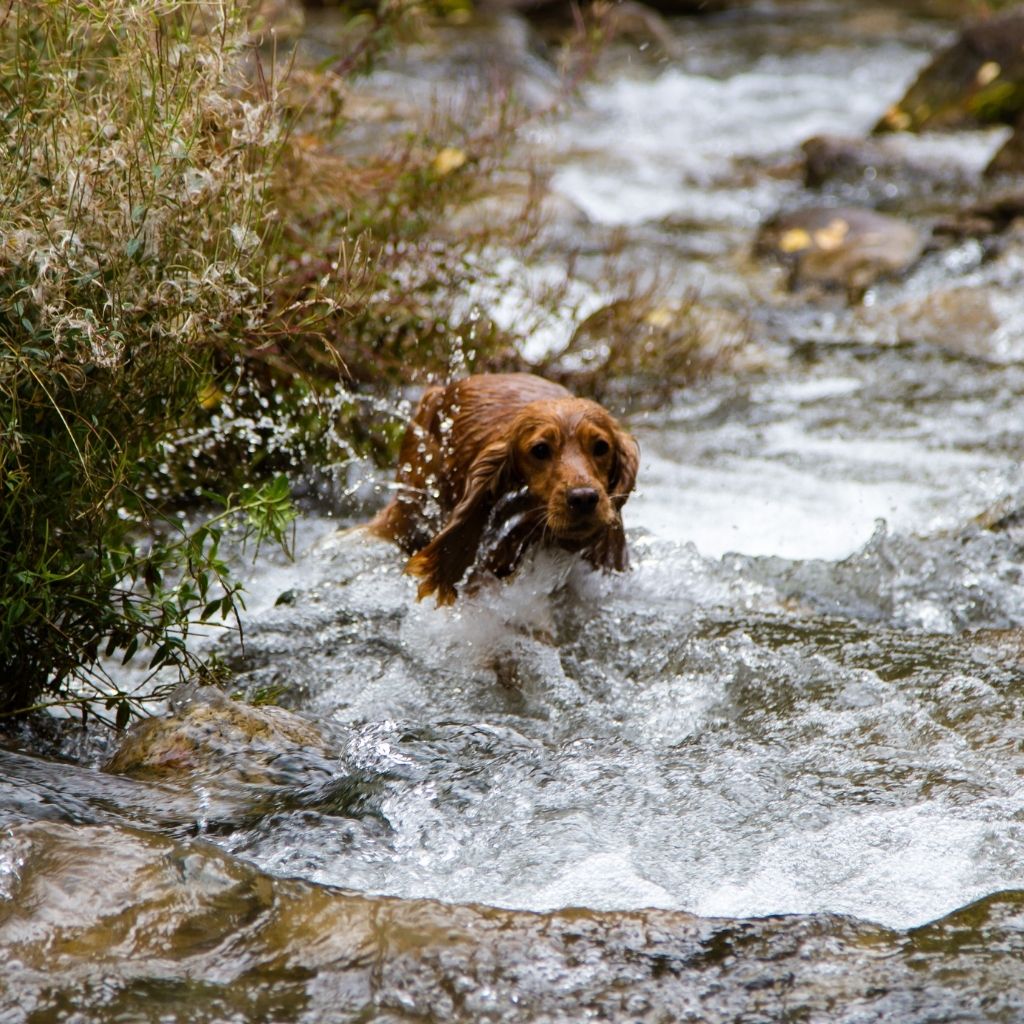If you’ve been thinking about getting a spaniel, you’re probably wondering if they’re hard to train.
The answer is that it depends on the dog and the owner.
Some dogs are easier to train than others, and some owners are more experienced than others.
Overall spaniels are easy dogs to train although there can be challenges along the way. With patience and consistent training, and if you are prepared to learn too, then most spaniels can be successfully and easily trained.
Spaniel training tips
Keep your spaniel happy and healthy – A happy and healthy dog is more likely to be responsive to training than a dog that is unhappy or unhealthy.
So, make sure you are providing your spaniel with the best possible care. This includes a nutritious diet, plenty of exercise, and regular vet check-ups.
Socialise your spaniel puppy from an early age – as soon as it is safe to take your puppy outdoors introduce him or her to as many different people, animals, and situations as possible.
This will help your puppy to grow into a confident and well-rounded adult dog who is less likely to be frightened or aggressive.

Spaniels are inquisitive, energetic dogs, both physically and mentally – do your best to keep your spaniel busy and to help him to burn off that energy with plenty of walks, games, and training sessions.
Challenge his mental energy with games and other activities.
Bored spaniels can become destructive and difficult to handle.
Set rules and boundaries and stick to them – dogs need rules and boundaries in order to understand what is expected of them.
When training your spaniel, make sure you are consistent with your commands and expectations, and be prepared to reward good behaviour with praise and treats.
Be patient – as with any type of training, successful spaniel training requires patience. Don’t expect your dog to be perfect from the get-go – remember, it’s a process, and with time and patience you will see results.
Use positive reinforcement methods – trainers who use positive reinforcement (rewarding good behaviour with praise and treats) have much more success than those who rely on punishment (such as yelling, hitting, or using electric shocks).
Positive reinforcement is kinder to both the dog and the owner, and it results in a much stronger bond between them.
Start training from an early age in the form of little games – think of these as the development of ‘good habits’, such as sitting down before being fed and coming back when called.
Don’t rush – you’ll hear lots of spaniel owners talking about how their young dog can do this and that but don’t be too keen to push your dog.
You’ll often find that these other owners are heading for problems with their youngster due to pushing too hard from an early age or their dogs aren’t as good as they say they are.

What’s the most important training for a spaniel?
People will have different views on this but, from my experience the most vital command is that your spaniel comes back when his name is called or when you whistle him.
You need to work on this from early days, using rewards when he comes back and ignoring him when he doesn’t.
I’ve a comprehensive article on this subject which will help you with this.
Exercise helps with spaniel training
Going back to the need for your spaniel to expend energy and socialise, good quality, free running exercise is vital for your spaniel’s physical and mental wellbeing and this will help you with your training too.
If you are wary of letting your spaniel run free then do some recall training at home and take him to a place where you can see him and it’s tricky for him to escape ( the beach is a great place for this).
Play games with your spaniel
Games are a great way to introduce training and exert your spaniel’s mental energy.
In fact you should try to treat all of your training sessions as funtime, making them as much of a game as possible.
There are lots of things that you can do from playing fetch with a ball to hiding smelly items in different places and helping your dog to find them.

Spend as much time as you can with your spaniel
You’ll find that as you spend more time with your spaniel you will understand each other more and training will become easier.
You’ll begin to understand his actions and body language more fully and this understanding will feed into your training activities.
You’ll also get an idea of what makes him tick and keeps him interested and, conversely, what makes him switch off.
Don’t just restrict your time together to training activities, spend time relaxing, playing, having fun and walking with your spaniel.
Work on developing an honest, friendly and trusting respectful relationship with your spaniel.
Final words
Spaniels are not difficult to train but they do have their moments and some, such as Cockers, can be more prone to doing things their way when they feel the need arises.
Always remember that spaniels are dogs, not some form of mini human, and that they are governed by different instincts to people.
By spending time with your spaniel you’ll begin to see how he sees the world and this will pay dividends when spaniel training.




